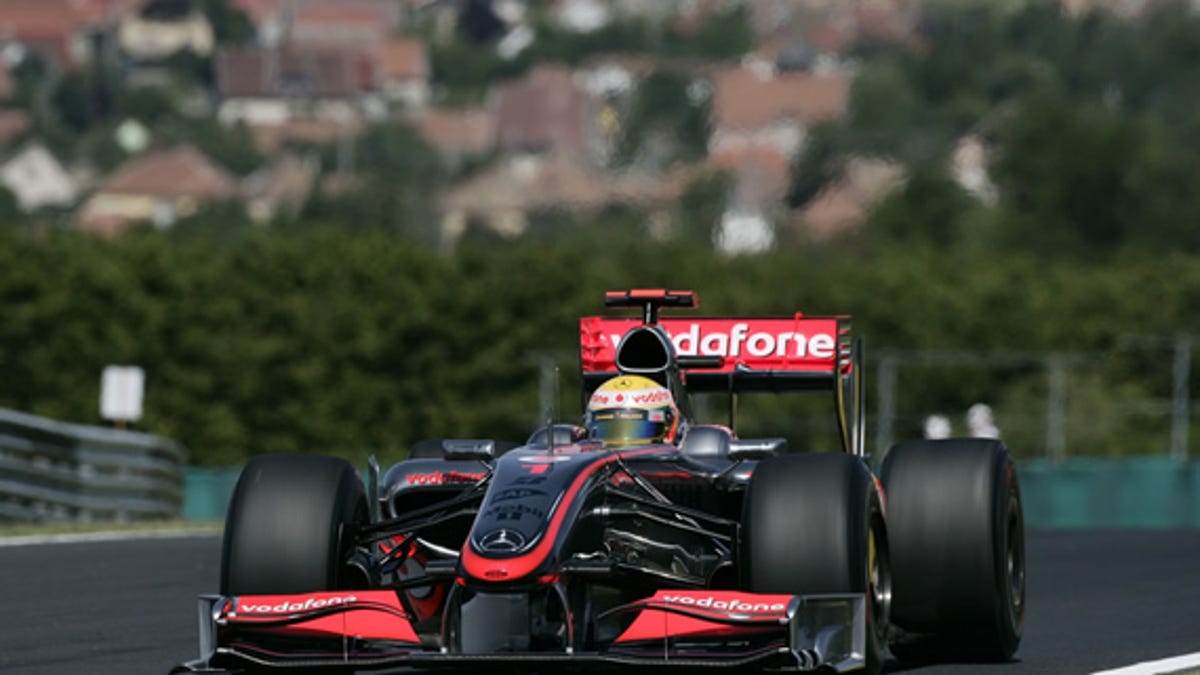Formula One KERS systems to boost mainstream cars?
British company Zytek is the driving force behind the KERS power-boost system used in McLaren-Mercedes' Formula 1 cars. But is it working on KERS for road-going cars?

Today, British company Zytek Automotive Technology was revealed as the driving force behind the KERS power boost system used in McLaren-Mercedes' Formula 1 cars. In a rather cruel juxtaposition, the same company has been gaining experience in the consumer market, providing drivetrains for the ever-so-slightly more sedate Smart fortwo Electric Drive. We laughed, then posed this question: is Zytek working on an F1-style power boost system for everyday road cars?
Zytec is being tight-lipped on the subject, but its spokesman,
Richard Gotch, has hinted that roadgoing KERS is not only viable, but also a definite possibility at some point "in the future". He also believes that while the system might seem best-suited to high performance uber-cars, it's ordinary motors that will gain the most.
Zytec's KERS system enables Lewis Hamilton's MP4-24 to recover and
store energy while braking, and releases it whenever he pushes a
button on the steering wheel. Fully charged, it can produce an
additional 400kJ (80bhp) for 6.7 seconds per lap, giving the driver a
sudden boost of straight-line performance that can reduce lap times by
0.3-0.5 seconds per lap.
According to Gotch, a similar system could provide city cars with an increase in acceleration and torque, making them sportier and more responsive, while retaining high fuel efficiency. He believes that despite such cars being slow off the line, KERS "would give you enough of a boost to get going really smoothly and quickly until the engine and accompanying turbocharger get up to speed".
It's not just city cars that could benefit -- high-performance turbocharged motors could reap the F1-style rewards too. KERS would not only provide more power for safer overtaking, but also reduce the issue of turbo lag -- the gap between the instant a car's accelerator is pressed and the moment the turbocharger delivers its power. According to Gotch, this disconcerting and often dangerous phenomenon "doesn't give the type of response that a driver wants, particularly on a high-performance car. A KERS system can fill in that gap."
Regardless of whether it's activated by a button on the steering wheel or automatically when the driver floors the accelerator pedal, KERS would almost certainly boost acceleration at low speed, reduce the burden on the engine to reduce emissions, and work in conjunction with the turbocharger to increase top-end power. It would also make you sound cooler to your friends than you actually are.
So, how long before your Ford Focus gets KERS? Who knows? Zytec is being tight-lipped and Gotch believes implementing KERS will prove a technical and financial challenge. Having said that, there's room for optimism. Rumour has it Jaguar is already working on a KERS system with UK company Torotrak, which gives us the tantalising possibility of seeing something KERS-related at the forthcoming Frankfurt Motor Show.
If so, we'll be sure to bring you news from the show floor. If not, at least there's always F1. We hope.